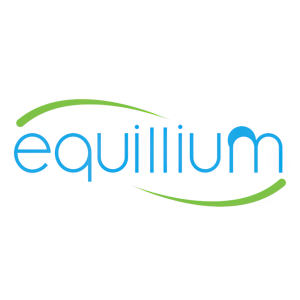Equillium Announces Initiation of the Phase 3 EQUATOR Study of Itolizumab in First-line Acute Graft-Versus-Host Disease
Pivotal study to enroll up to 200 patients
Global study with sites expected in
Primary endpoint assessment of Complete Response at Day 29
“The initiation of this pivotal study marks a major milestone for
“Acute GVHD remains a potentially lethal condition,” said
The Phase 3 EQUATOR study is supported by results generated in the EQUATE study of 25 high-risk aGVHD patients, where CR and ORR at Day 29 were
About the EQUATOR Study
The Phase 3, randomized, double-blind, placebo-controlled multicenter study (NCT05263999) will compare the efficacy and safety of IV administered itolizumab versus placebo (randomized 1:1) as a first-line therapy in up to 200 adult and adolescent patients with Grade III-IV aGVHD, or Grade II aGVHD with lower GI involvement, in combination with high doses of corticosteroids, the current standard of care. The primary study endpoint is complete response rate at Day 29; key secondary endpoints include overall response rate at Day 29 and durability of complete response rate from Day 29 through Day 99.
Per the study protocol, patients must receive itolizumab within 3-days of the first administration of high-dose corticosteroids with a treatment period from Days 1-99, and a follow-up period from Days 100-365. Approximately 200 eligible subjects who receive 2 mg/kg methylprednisolone or equivalent on Day 1 will be randomized in a 1:1 ratio to the following two treatment groups:
-
Group A : Itolizumab, 1.6 mg/kg initial dose followed by 6 doses of 0.8 mg/kg once every 2 weeks (q2w), plus systemic corticosteroids (100 subjects) - Group B: Placebo, 7 doses q2w, plus systemic corticosteroids (100 subjects)
An independent data monitoring committee will regularly review safety data, and an interim analysis is planned after approximately 100 subjects have completed Day 29 assessments for both futility and efficacy.
About Graft-Versus-Host Disease (GVHD)
GVHD is a multisystem disorder that is a common complication of allogeneic hematopoietic stem cell transplants (allo-HSCT) caused by the transplanted immune system recognizing and attacking the recipient’s body. Symptoms of GVHD include rash, itching, skin discoloration, nausea, vomiting, diarrhea, and jaundice, as well as eye dryness and irritation.
GVHD is the leading cause of non-relapse mortality in cancer patients receiving allo-HSCT, and its risk limits the number and type of patients receiving HSCT. GVHD results in high morbidity and mortality, with five-year survival of approximately
About Itolizumab
Itolizumab is a clinical-stage, first-in-class anti-CD6 monoclonal antibody that selectively targets the CD6-ALCAM pathway. This pathway plays a central role in modulating the activity and trafficking of T cells that drive a number of immuno-inflammatory diseases.
About
For more information, visit www.equilliumbio.com.
Forward Looking Statements
Statements contained in this press release regarding matters that are not historical facts are "forward-looking statements" within the meaning of the Private Securities Litigation Reform Act of 1995. Forward-looking statements may be identified by the use of words such as "anticipate", "believe", “could”, “continue”, "expect", "estimate", “may”, "plan", "outlook", “future” and "project" and other similar expressions that predict or indicate future events or trends or that are not statements of historical matters. Because such statements are subject to risks and uncertainties, many of which are outside of the Company’s control, actual results may differ materially from those expressed or implied by such forward-looking statements. Such statements include, but are not limited to statements regarding the potential benefit of treating patients with aGVHD, uncontrolled asthma, or lupus/lupus nephritis with itolizumab, Equillium’s plans and expected timing for developing itolizumab including the expected timing of initiating, completing and announcing further results from the EQUATE, EQUIP, and EQUALISE studies, the potential for any of Equillium’s ongoing or planned clinical studies to show safety or efficacy, statements regarding the impact of new leadership team members, Equillium’s anticipated timing of regulatory review and feedback, Equillium’s cash runway, and Equillium’s plans and expected timing for developing itolizumab and potential benefits of itolizumab. Risks that contribute to the uncertain nature of the forward-looking statements include: uncertainties related to the abilities of the leadership team to perform as expected; Equillium’s ability to execute its plans and strategies; risks related to performing clinical studies; the risk that interim results of a clinical study do not necessarily predict final results and that one or more of the clinical outcomes may materially change as patient enrollment continues, following more comprehensive reviews of the data, and as more patient data become available; potential delays in the commencement, enrollment and completion of clinical studies and the reporting of data therefrom; the risk that studies will not be completed as planned; Equillium’s plans and product development, including the initiation and completion of clinical studies and the reporting of data therefrom; whether the results from clinical studies will validate and support the safety and efficacy of itolizumab; changes in the competitive landscape; uncertainties related to Equillium’s capital requirements; and having to use cash in ways or on timing other than expected and the impact of market volatility on cash reserves. These and other risks and uncertainties are described more fully under the caption "Risk Factors" and elsewhere in
View source version on businesswire.com: https://www.businesswire.com/news/home/20220304005081/en/
Investor Contact
Vice President, Investor Relations & Corporate Communications
619-302-4431
ir@equilliumbio.com
Media Contacts
Aljanae Reynolds
areynolds@wheelhouselsa.com
Source:







